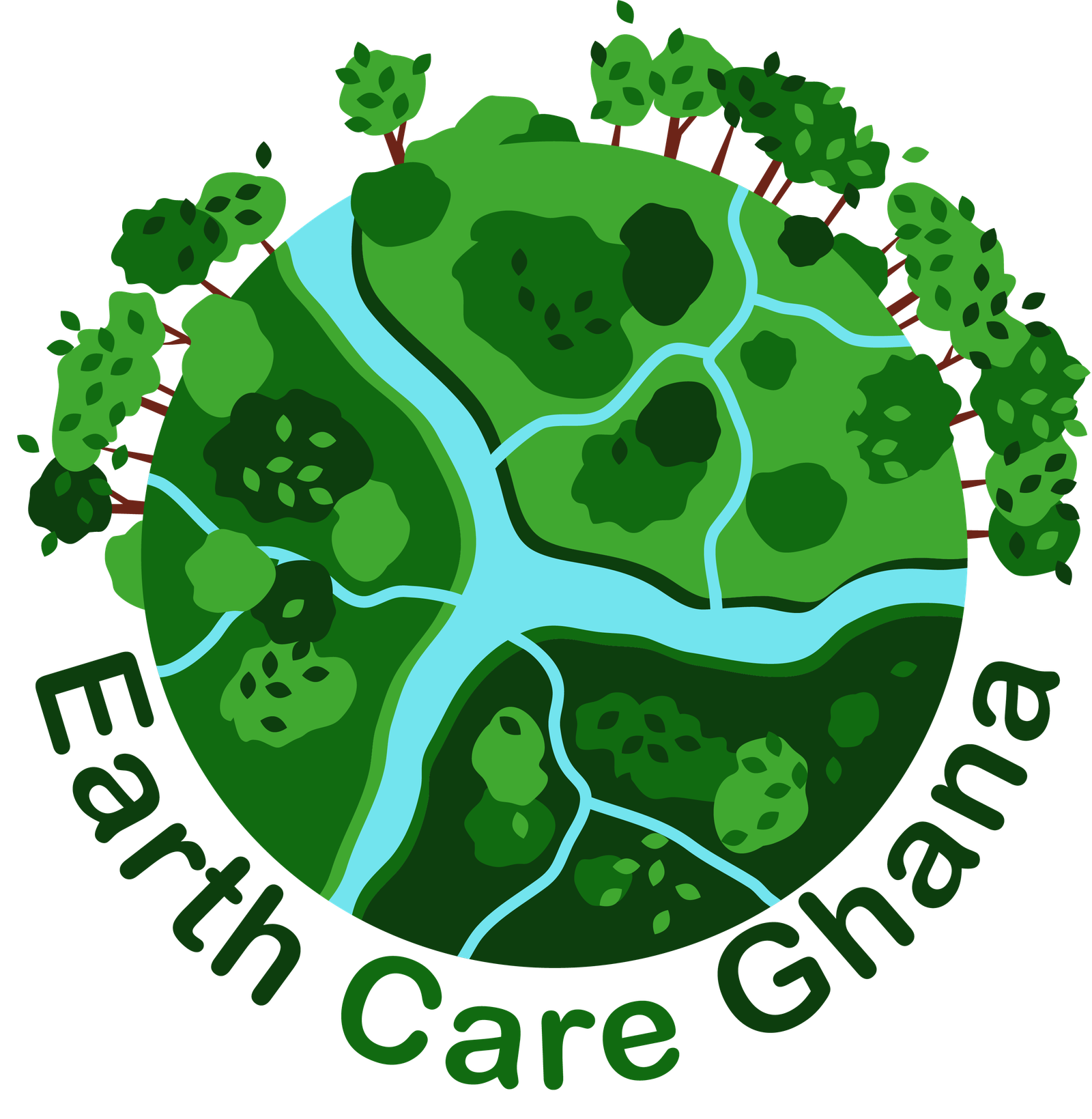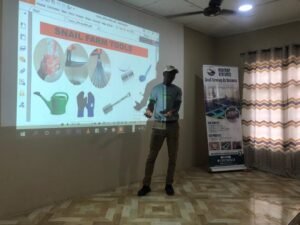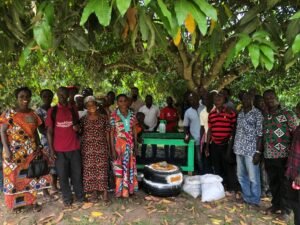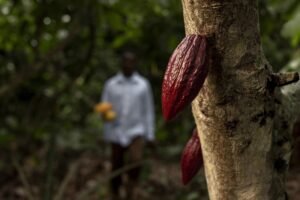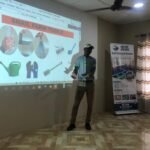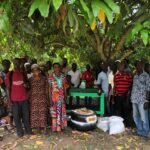PROMOTING AGROFORESTRY-BASED SNAIL FARMING AS AN ALTERNATIVE LIVELIHOOD FOR COCOA FARMERS IN THE SEKYERE SOUTH EAST DISTRICT, GHANA
Introduction: The Sekyere South East District in Ghana has long been reliant on cocoa farming as its primary source of income. However, fluctuating cocoa yields and unpredictable market conditions have often left farmers vulnerable to poverty and forced many to consider rural-urban migration. In response to these challenges, Earth Care Ghana, in collaboration with Non-Traditional Agriculture Production (NONTRAP ), initiated a project to provide an alternative livelihood for cocoa farmers through agroforestry-based snail farming. This publication highlights the key aspects and impact of the project.
Training and Capacity Building: The project began by imparting crucial knowledge and skills to smallholder farmers, encompassing both men and women aged between 25 and 68. A total of 1,455 farmers were trained in the basics of snail farming, including breeding, feeding, and management. The training adopted a ground-up system that supports vegetation, ensuring sustainability and harmony with the environment. In addition to technical skills, farmers were educated about market demand, and pricing, and offered a taker agreement by NONTRAP, promoting fair trade and responsible business practices.
Demonstration Farms as Learning Hubs: To serve as models for other farmers in the district, three demonstration farms were established in Ntunkumso, Senkyi, and Brofoyedu villages. These farms showcased best practices in agroforestry-based snail farming and provided a platform for farmers to share experiences and learn from one another. By enabling knowledge transfer and fostering a spirit of collaboration, the demonstration farms played a pivotal role in empowering farmers to adopt sustainable and profitable farming practices.
Impact on the Community: The project’s impact on the community has been significant, addressing multiple socio-economic challenges. Firstly, it has provided an alternative income source for cocoa farmers, especially during the off-season when cocoa yields are low. By diversifying their income streams, farmers are now more resilient to market fluctuations and have improved their standard of living. Secondly, the project has helped stem rural-urban migration, as children of local farmers can now remain in rural areas to engage in snail farming alongside their parents. This has fostered community cohesion and preserved the agricultural heritage of the region.
Contributions to Sustainable Development Goals (SDGs): The project aligns with several SDGs, including No Poverty (SDG 1), Gender Equality (SDG 5), Decent Work and Economic Growth (SDG 8), and Responsible Consumption and Production (SDG 12). By providing alternative livelihood opportunities, the project has contributed to poverty reduction and create sustainable employment for both men and women. The emphasis on fair trade practices and responsible consumption aligns with the project’s commitment to social and environmental responsibility.
Conclusion: The promotion of agroforestry-based snail farming as an alternative livelihood for cocoa farmers in the Sekyere South East District has proven to be a successful endeavor. Through training, capacity building, and the establishment of demonstration farms, the project has empowered farmers, reduced rural-urban migration, and contributed to the achievement of multiple SDGs. With continued support from stakeholders, snail farming can become a viable and sustainable option for rural communities across Ghana, fostering economic growth and overall development. The project carried out between 5th and 20th December 2022, serves as a shining example of how agroforestry practices can transform communities and improve livelihoods.
Donate to support Earth Care Ghana Programs
Your financial support to Earth Care Ghana makes available resources to help mobilize volunteers and members and to develop school programs that train upcoming environmental champions.
Button Text